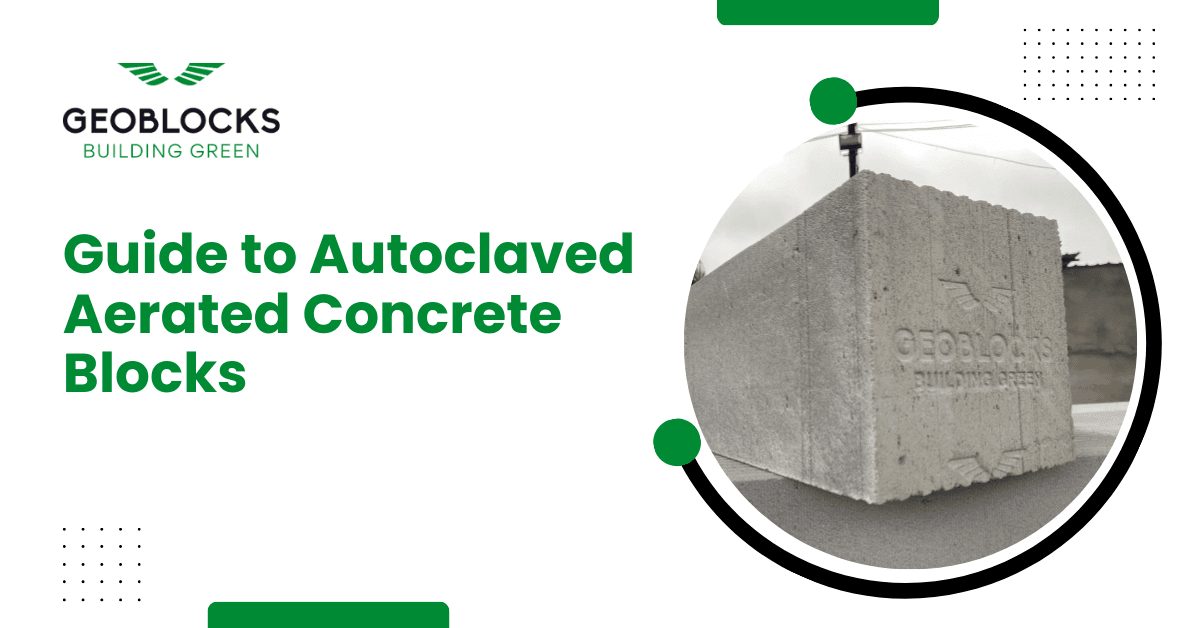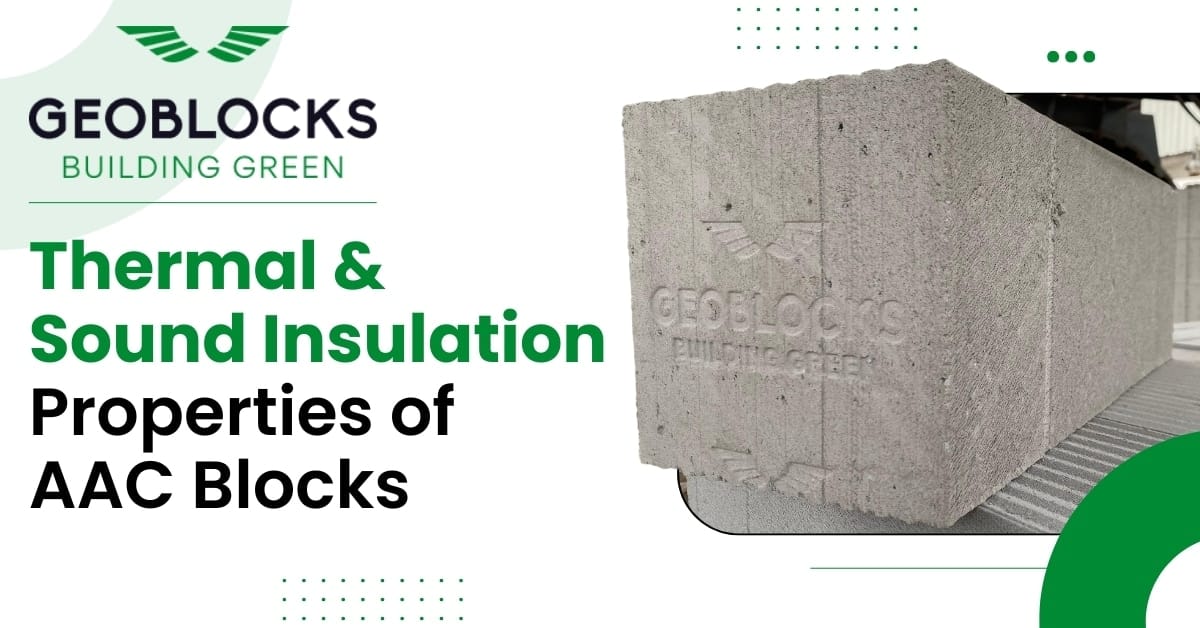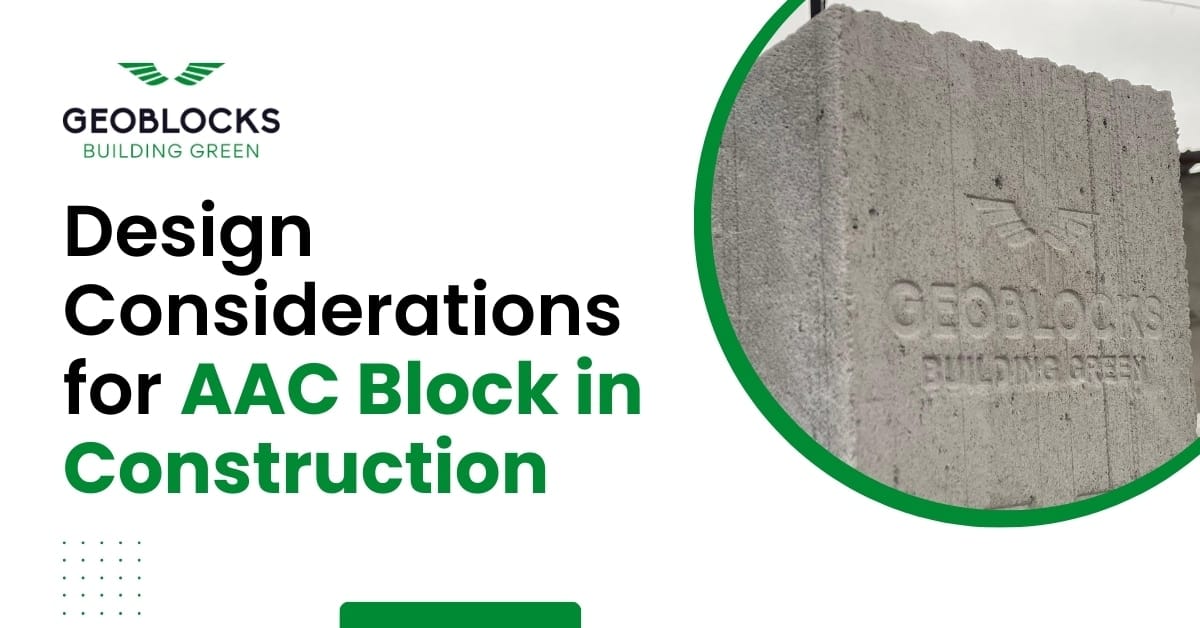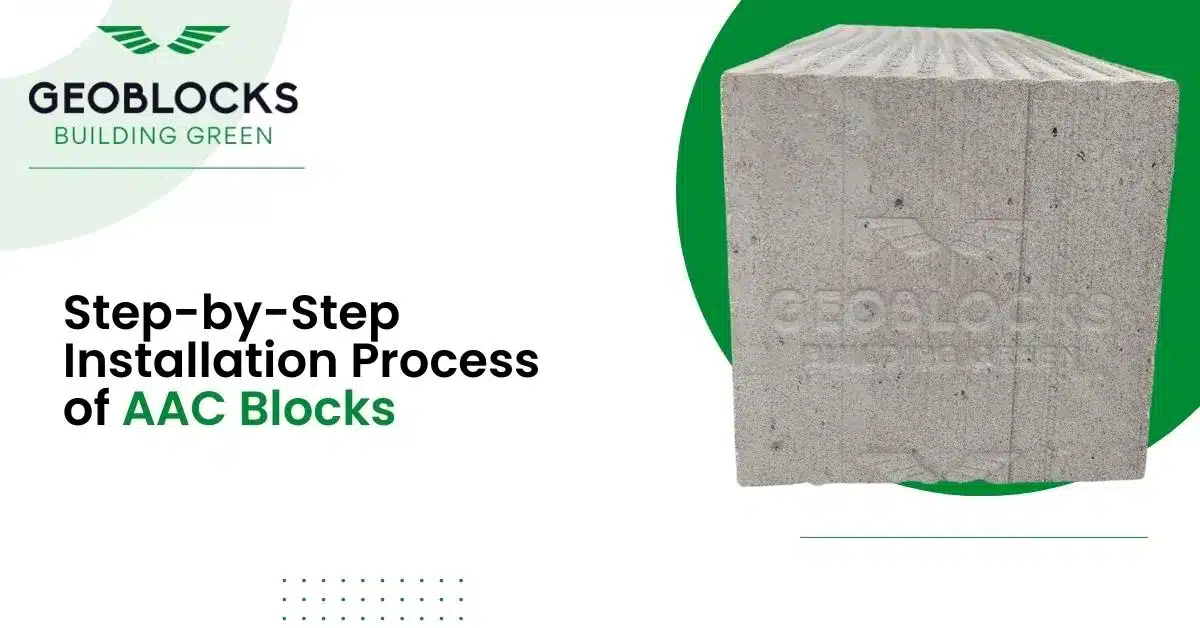In today’s world of smart construction and sustainable living, insulation plays a crucial role in…

What Are AAC Blocks?
Autoclaved Aerated Concrete (AAC) blocks are innovative building materials made from a mixture of silica, lime, cement, water, and aluminum powder. These materials undergo a curing process in an autoclave, leading to a lightweight, precast product that offers excellent insulation, fire resistance, and structural integrity. Commonly used in walls, floors, and roofs, AAC blocks are gaining popularity in the construction industry due to their sustainability and efficiency.
What Are AAC Blocks Made Of?
AAC blocks are primarily composed of:
- Silica Sand: The main ingredient that provides the necessary silica content.
- Lime: Adds strength and helps in the chemical reactions during curing.
- Cement: Binds the mixture together and contributes to the block’s structural integrity.
- Water: Essential for hydration and facilitating chemical reactions.
- Aluminum Powder: Acts as a foaming agent, creating tiny air pockets that reduce the density of the final product.
This combination results in a lightweight material that boasts superior thermal insulation properties and is eco-friendly.
What Is AAC Block Construction?
AAC block construction refers to the use of AAC blocks in building structures. The process typically involves:
- Design Planning: Assessing the structural requirements and designing the layout.
- Foundation Preparation: Ensuring a strong base that can support the lightweight blocks.
- Block Laying: Using thin-bed mortar to ensure proper adhesion and alignment.
- Finishing: Applying plaster or other finishes to enhance aesthetics and functionality.
AAC block construction is favored for its speed and efficiency, as these blocks are easy to handle and can be cut to size on-site.
What Is AAC Blocks Price?
The price of AAC blocks can vary based on factors like location, manufacturer, and size. On average, AAC blocks in India can range from ₹70 to ₹150 per block. Bulk purchases often lead to discounts, and while the initial investment may be higher than traditional bricks, the overall savings in labor and energy costs during construction can be significant.
GEOBLOCKS, a leading manufacturer of AAC blocks, provides high-quality products that meet the diverse needs of the construction industry. Their competitive pricing makes them an attractive option for builders and contractors looking to maximize both quality and cost-effectiveness.
What Is an AAC Block Wall?
An AAC block wall is a wall constructed using AAC blocks. These walls offer numerous benefits:
- Lightweight: Reduces the overall load on the foundation.
- Insulation: Provides excellent thermal and acoustic insulation, contributing to energy efficiency.
- Fire Resistance: AAC blocks are non-combustible and can withstand high temperatures.
- Eco-Friendly: Made from natural materials and produced with minimal environmental impact.
AAC block walls can be used in both load-bearing and non-load-bearing applications, making them versatile for various construction projects.
What Is an AAC Block Plant?
An AAC block plant is a facility where AAC blocks are manufactured. These plants typically consist of:
- Raw Material Handling: Equipment for receiving and storing silica, lime, and other ingredients.
- Mixing Units: Where the raw materials are combined to form a slurry.
- Casting Machines: For pouring the mixture into Molds.
- Autoclaves: High-pressure chambers that cure the blocks to achieve the desired strength and durability.
- Cutting Machines: To shape the blocks according to specified dimensions.
The technology involved in AAC block plants varies, with modern plants employing automation for efficiency.
What Is an AAC Block Machine?
An AAC block machine is the equipment used in the production of AAC blocks. This machinery includes various components such as mixers, cutting devices, and autoclaving systems. These machines automate the production process, increasing efficiency and ensuring uniformity in block quality.
What Are Aerated Concrete Blocks?
Aerated concrete blocks, also known as AAC blocks, are made from a mixture of sand, cement, lime, and water, with the addition of a foaming agent. This results in a lightweight, porous material with excellent insulating properties. Aerated concrete blocks are used in a variety of construction applications, providing an efficient and sustainable building solution.
Frequently Asked Questions
Are AAC blocks environmentally friendly?
Yes, AAC blocks are made from natural materials and have a lower carbon footprint compared to traditional concrete.
Can AAC blocks be used for load-bearing walls?
Absolutely! AAC blocks can be utilized for both load-bearing and non-load-bearing walls due to their strength.
How do AAC blocks compare to traditional bricks?
AAC blocks are lighter, provide better insulation, and are often quicker to install compared to traditional bricks.
What are the advantages of using AAC blocks?
Key advantages include energy efficiency, fire resistance, sound insulation, and faster construction times.
Conclusion
AAC blocks are revolutionizing the construction industry with their lightweight, durable, and eco-friendly properties. As more builders recognize the benefits of AAC blocks, they are becoming a popular choice for modern construction projects. Understanding the materials, construction techniques, and pricing of AAC blocks is crucial for anyone looking to invest in efficient building solutions. Whether you’re a contractor, architect, or homeowner, AAC blocks offer a sustainable path forward in the quest for energy-efficient and resilient structures.
For high-quality AAC blocks at competitive prices, consider GEOBLOCKS as your trusted supplier!




